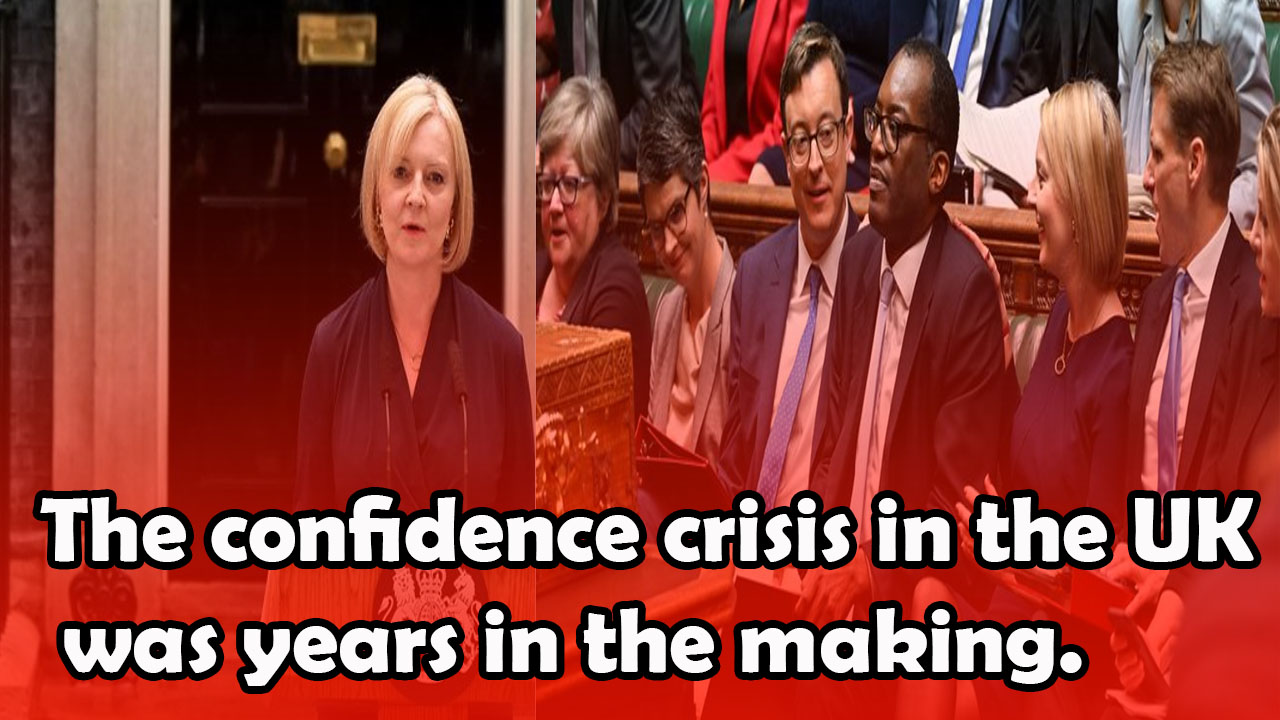Up until that point, the UK believed that markets trusted it. Now, business owners and households will probably pay a price.
Britain's new prime minister is under great pressure to budge as a result of the country's self-inflicted financial crisis, which threatens to hasten the economy's slide into recession.
The pound has fallen to its lowest level against the dollar in the week since the government announced the largest tax cuts since 1972 with little information regarding how they will be paid for. The cost of insuring British government debt against default has also risen to its highest level since 2016, and the Bank of England has been forced to intervene due to worries about the country's pension funds.
The following events will decide how severe the impending recession is. The answer to this issue will largely depend on whether Liz Truss' three-week-old government can win back investors' trust.
Not simply investors' immediate worries about unfunded tax cuts at a time when inflation is close to a four-decade high, or the Bank of England's failure to control price increases, but also Friday's mini-budget has become a flashpoint. Their long-held concerns about Britain, its current account deficit, its tumultuous relationship with its closest trade partner, and, most importantly, a scepticism of what succeeding politicians claim, have been brought into stark relief.
Peter Kinsella, global head of FX strategy at Union Bancaire Privee UBP SA in London, called it "It’s the latest in a long line of self-imposed economically illiterate decisions." "Brexit was the first iteration, and now we're experiencing the most recent one."
As prices fell, the Bank of England was compelled to move to stop a meltdown in the gilt market and used a variation of a policy instrument Truss had been critical of recently. It pledged to purchase any long-dated gilts required to bring the market back into compliance. Long-dated gilt prices rose as a result, but there are now two further risks: the need for the bank to hike rates even more in the coming weeks, and the possibility that investors may question if the BOE is funding the government.
However, according to Kallum Pickering, senior economist at Berenberg Bank, the BOE has bought the "government time to rebuild its credibility" for the time being. It will be vital how they utilise that time.
Chancellor of the Exchequer Kwasi Kwarteng was encouraged by leading bankers in the City of London yesterday to comfort markets ahead of a statement scheduled on November 23.
The government has previously been urged to rethink its tax cuts by the International Monetary Fund, which rescued the United Kingdom in 1976. Renowned economists are warning that the UK is showing signs of an emerging market. Former Bank of England Governor Mark Carney charged that the Truss administration was "undercutting" the country's financial sector in an interview with the BBC.
On Thursday, the prime minister maintained her objectives and said that strong pressures are being placed on economies all across the world.
She told BBC local radio, "I'm absolutely sure the administration has done the correct thing. "This is the best strategy."
Truss' issue is that she made tax reduction the focal point of her political platform. It would be politically disastrous for her to do a U-turn so early in her term because she was elected with the support of party activists. She was opposed by the majority of her own party's MPs, making her vulnerable to backlash if they believe her initiatives would fail.
The British people must choose between a sharp rise in borrowing costs, which might precipitate a property catastrophe and worsen any recession, or a round of drastic public expenditure cutbacks while they wait to see if her bet on "trickle-down" economics works out.
Former US Treasury Secretary Lawrence Summers, who is currently a professor at Harvard University and a paid contributor to Bloomberg Television, claimed that Britain will be remembered for having pursued the worst macroeconomic policies of any major country in a long time as a result of Brexit, the Bank of England's tardiness, and the current fiscal policies.
For years, the confidence problem had been building. Investors didn't believe the Chancellor when he pledged to stabilise the public finances because of dubious claims from the ruling Conservatives, including those about Brexit's advantages and parties in Downing Street during lockdown, as well as the recent firing of the Treasury's top official and the marginalisation of the nation's budget watchdog.

